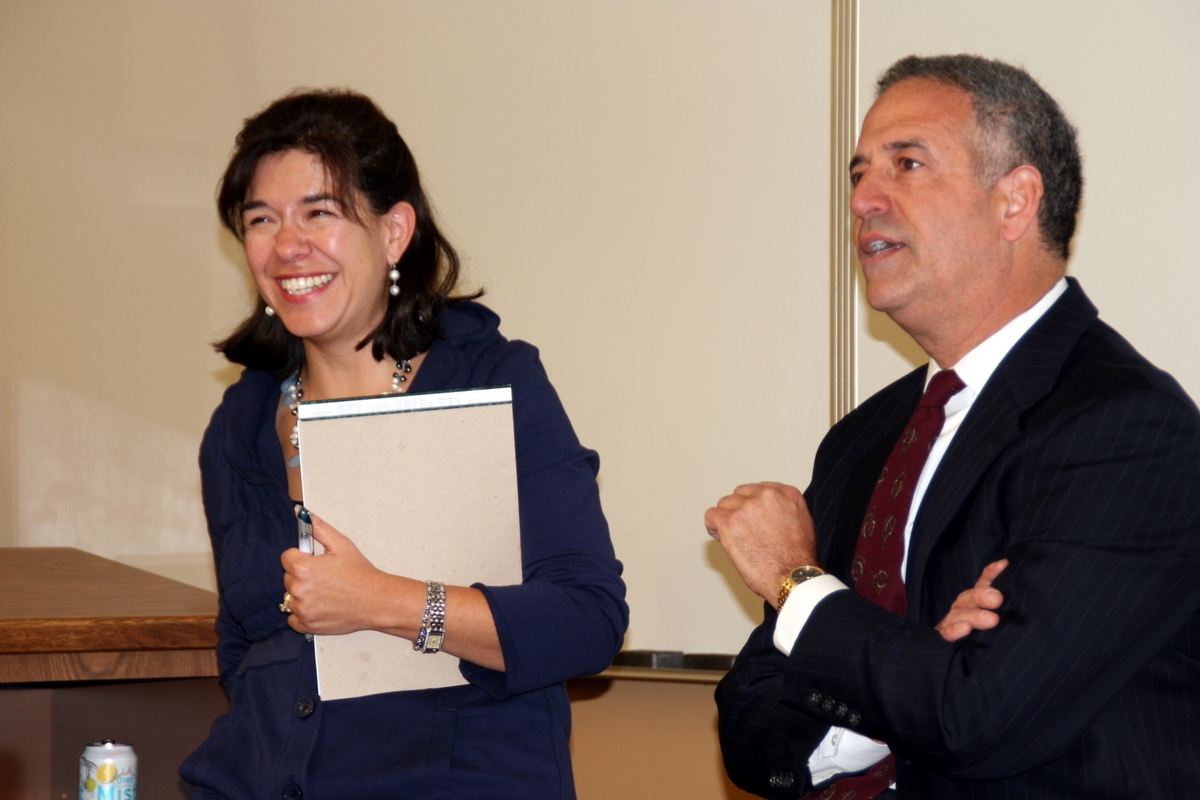Senator Feingold on Civility
 Last week in honor of ABA Mediation Week, the DR Society here hosted former Senator Russell Feingold for a talk on Civility in Public Discourse. We had a wonderful off-the-record hour (so I can’t tell you all the good stories!–here is me cracking up at one) but what I can say is heartening in terms of supporting our students. Feingold noted that the most persuasive negotiators in the Senate were those who were passionate and had conviction and would also know when to work out a deal. You could trust that they would keep their word. When I asked him about the “argument culture” that seems to pervade Washington, Senator Feingold urged our students to fight against this mentality–stay civil, be humble, keep your word. In reflecting about his long-term interactions with Senator McCain on the campaign finance reform bill, Senator Feingold pointed out that these cross-cutting relationships are crucial–after all, you don’t need to make a deal with those who already agree with you. Over his 18 years in the Senate, he noted how the atmosphere had changed where a senator was part of a joint enterprise with an honored history and esprit de corps–these days politicians get elected by running against the idea that you need to work together. In focusing on Wisconsin–which has been an incredible battleground in the last year over labor rights, the Supreme Court, and other issues–I will note at least two state senators that seem to be taking a page from Senators Feingold and McCain. Dubbed the Common Ground tour, these two senators are touring their respective districts stumping for common issues. (For more on the Common Ground tour and to hear directly from these state senators, you can click here to watch our own Mike Gousha interviewing them as part of Marquette’s “On the Issues” series.)
Last week in honor of ABA Mediation Week, the DR Society here hosted former Senator Russell Feingold for a talk on Civility in Public Discourse. We had a wonderful off-the-record hour (so I can’t tell you all the good stories!–here is me cracking up at one) but what I can say is heartening in terms of supporting our students. Feingold noted that the most persuasive negotiators in the Senate were those who were passionate and had conviction and would also know when to work out a deal. You could trust that they would keep their word. When I asked him about the “argument culture” that seems to pervade Washington, Senator Feingold urged our students to fight against this mentality–stay civil, be humble, keep your word. In reflecting about his long-term interactions with Senator McCain on the campaign finance reform bill, Senator Feingold pointed out that these cross-cutting relationships are crucial–after all, you don’t need to make a deal with those who already agree with you. Over his 18 years in the Senate, he noted how the atmosphere had changed where a senator was part of a joint enterprise with an honored history and esprit de corps–these days politicians get elected by running against the idea that you need to work together. In focusing on Wisconsin–which has been an incredible battleground in the last year over labor rights, the Supreme Court, and other issues–I will note at least two state senators that seem to be taking a page from Senators Feingold and McCain. Dubbed the Common Ground tour, these two senators are touring their respective districts stumping for common issues. (For more on the Common Ground tour and to hear directly from these state senators, you can click here to watch our own Mike Gousha interviewing them as part of Marquette’s “On the Issues” series.)
Cross posted at Indisputably.


